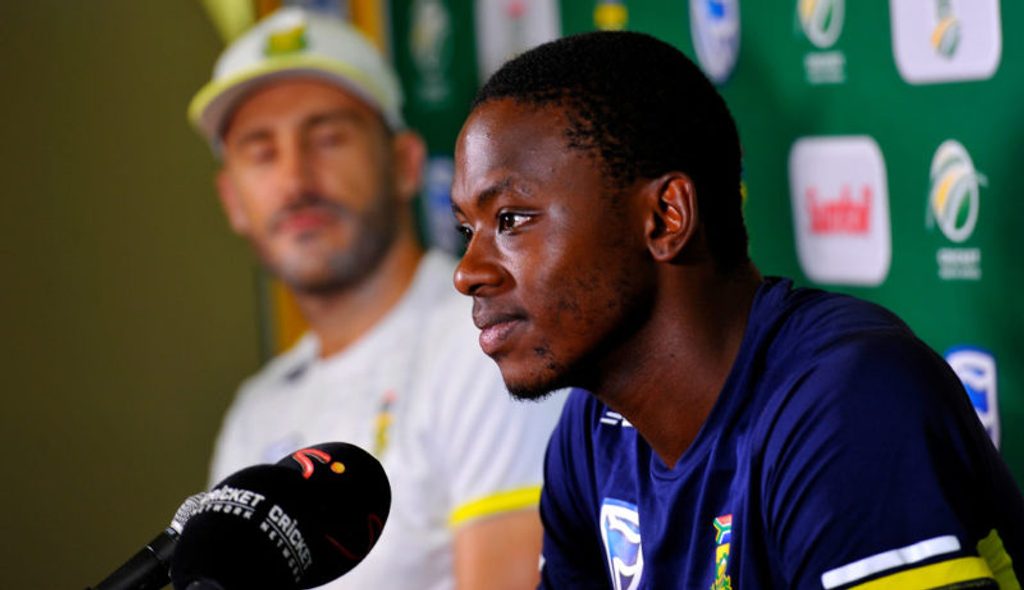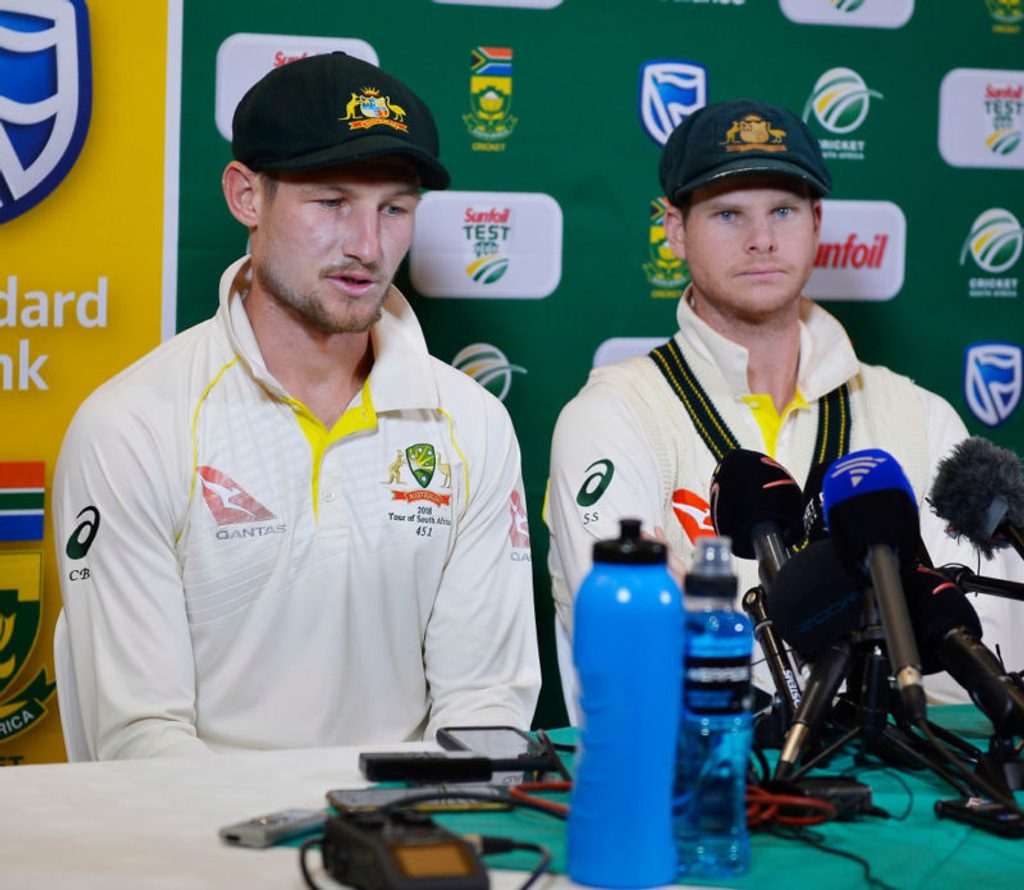
The Australian response to the ball-tampering scandal has surprised many in South Africa, whose knee-jerk response to any attack, legitimate or not, is resolute defence, writes Telford Vice.
South Africa are champion ball-tamperers. They’ve been rumbled three times since 2013, twice with the villain in chief the player who is now their captain, the other with a senior fast bowler in the role.
If they were as good at winning World Cups as they were at being nabbed for unfairly changing the condition of the ball, the nation wouldn’t have to hold its breath for weeks on end every four years.
Or are South Africa bad at ball-tampering considering they keep getting caught?
Whatever. Not once out of those three times did a high-ranking suit get on a plane to find out what the hell was going on.
 Faf du Plessis has previously been punished for minor ball-tampering offences
Faf du Plessis has previously been punished for minor ball-tampering offences
Not once did the South African involved admit their guilt even before the ICC had said anything. In fact, they appealled one of those verdicts in a fit of principled pique — and lost — and shrugged off the other two as bothersome meddling by a nanny organisation.
No-one was stood down by the home board for a moment, nevermind threatened with disciplinary action.
For any politician to pronounce on the rights and wrongs of it all would have been unthinkable. The president? Please. He was too busy being corrupt.
These instances of ball-tampering made headlines in South Africa, of course, but too much of the coverage was sympathetic, dismissive or even aggressive towards proven transgressions of the laws of the game.
 Kagiso Rabada was only playing at Newlands due to a strong appeal against his punishment
Kagiso Rabada was only playing at Newlands due to a strong appeal against his punishment
Some of the reports I wrote were eviscerated to pale imitations of the copy I filed. Reading the published versions, I could imagine how the editors must have blanched on reading my raw copy.
So when the media that were gathered at Newlands on Saturday evening looked out of the window and saw Steve Smith and Cameron Bancroft crossing the ground, gingerly, to face the microphones and the music, they were surprised.
One of them, albeit someone from the fake smoke and plastic mirrors world of television, said so out loud: “I’m so surprised! I never expected this!”
 Bancroft and Smith own up at the press conference
Bancroft and Smith own up at the press conference
How they must have marvelled at Smith and Bancroft looking back at the room like sheep surveying the looming slaughterhouse and saying things said only by those who have acknowledged that they have committed the gravest of crimes. Real crimes, and even then only if they are arguing in mitigation of sentence.
They must have been exponentially more surprised when they woke on Sunday to reports of Australia’s prime minister voicing his unveiled condemnation, to say nothing of the deluge of disgust that has flooded in from the cricket world and beyond and from everyone and everything that carries even the faintest whiff of being Australian.
All of which has made South Africans look at Australians with fresh eyes. We thought they were tough. Turns out they’re terrified of anyone who calls themselves an authority.
What does tough look like? When Kagiso Rabada was banned for the last two Tests of the Australia series after committing what in a criminal court would have earned him a charge of assault, unarguably the leading lawyer in the country rode in on his expensive briefcase to get Rabada off the hook. He duly did, and the victory was celebrated as if a small war had been won. That’s what tough looks like.
This has made South Africans look at Australians with fresh eyes. We thought they were tough
It was the Australians’ turn to be surprised, although whether they were more taken aback by the fact that Rabada had appealled his original conviction or that his challenge had been successful seemed unclear. “It’s interesting,” a gobsmacked Smith said.
South Africans’ knee-jerk response to any attack, legitimate or not, is resolute defence. This has been true since 1652, when Europeans arrived on our shores to stay and considered the place theirs. They were, of course met with resistance.
Then the boers thought they could claim a country simply by rolling into the hinterland on a few ox-wagons. They discovered that Shaka and his Zulu impis didn’t like that idea.
And so on and so forth, right up to the end of apartheid. Just the other week we defended Jacob bloody Zuma all the way out of his ill-gotten job as president of the country.
So all this Aussie angst is being received in South Africa with the kind of wonder that would greet the discovery of a real, live Tasmanian emu, which has been extinct since 1850.
That same year, on April 23, Cape Town was brought to a standstill by a mass meeting that resolved to petition Queen Victoria to grant the Cape a government.
We’ve been tough for a long time. At least, we like to think so. Just like the Aussies.








